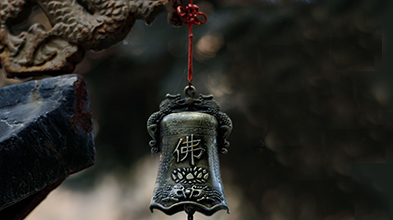Wisdom from Chinese Literary and Buddhist Classics
365 Days for Travelers
4/21: HOW TO CONDUCT ONESELF
Geng Dingxiang (1524 - 1597, Ming Dynasty)English translation: Miao Guang
When mundane sentiments become overwhelming,
we must be able to remain detached.
When mundane sentiments become agonizing,
we must be able to endure them.
When mundane sentiments become gloomy,
we must be able to let go.
When mundane sentiments become indulging,
we must be able to abandon them.
When mundane sentiments become chaotic,
we must be able to remain at ease.
When mundane sentiments become a shackle,
we must be able to shatter it.
When mundane sentiments become exaggerating,
we must be able to restrain them.
When mundane sentiments become unbearable,
we must be able to bear them.
When mundane sentiments become intolerable,
we must be able to tolerate them.
── from Sishu Xuan
(Selection from Four Books)
SILENCE
Liang Shih-chiu (1903 - 1987)English translation: Rosalyna Huang
Those who have attained the Way have long stopped clinging onto defilements and worries; they are naturally able to appreciate better the state of silence. By silence, it does not mean biting one’s lips but having absolutely nothing to say from the beginning. Just as the saying goes, “The knower does not speak, and the speaker does not know.” When the Buddha held up a flower at the assembly on Vulture Peak, the entire congregation remained silent. It was only Mahakasyapa who broke into a smile. Such meeting of minds surpasses a thousand of words.
── from Yashe Xiaopin Xuji
(Sequel of Sketches of a Cottager)
What's New?
AUGUST

Humble Table, Wise Fare
INSPIRATION
Recorded by Leann Moore
Language
—should be like sunshine
and convey a bright view,
—should be like a flower
and convey fragrant thought,
—should be like pure water
and convey clear ideas.

Dharma Instruments
Venerable Master Hsing Yun grants voices to the objects of daily monastic life to tell their stories in this collection of first-person narratives.

Sutras Chanting
The Medicine Buddha SutraMedicine Buddha, the Buddha of healing in Chinese Buddhism, is believed to cure all suffering (both physical and mental) of sentient beings. The Medicine Buddha Sutra is commonly chanted and recited in Buddhist monasteries, and the Medicine Buddha’s twelve great vows are widely praised.

Newsletter
What is happening at Hsingyun.org this month? Send us your email, and we will make sure you never miss a thing!





